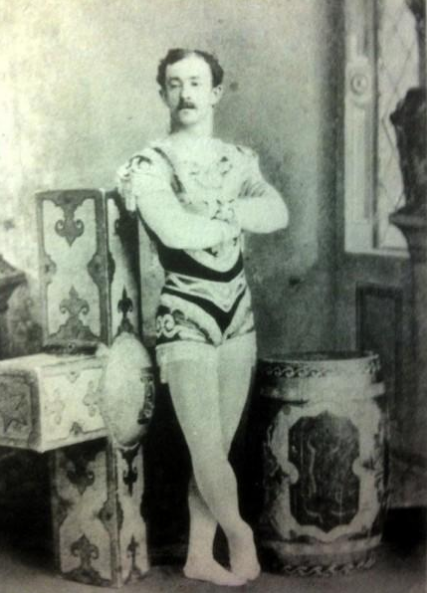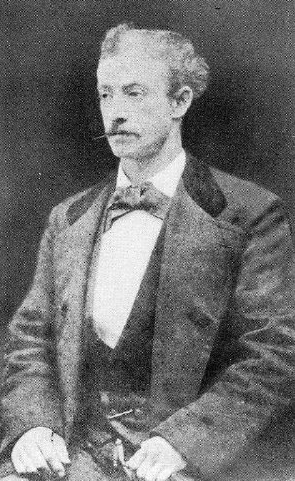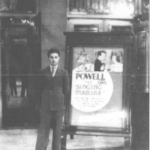The Dean Of Vaudeville, F.F. Proctor
A New Englander with a hard work ethic, a promoter of good family entertainment, and an astute businessman, Frederick Freeman (Francis) Proctor rose from well-known circus performer to become one of the wealthiest theatre owners in the world.
FF Proctor was born in Dexter, ME in 1851. At 14, he worked as a bundle boy at R. H. White’s Dry Goods Store in Boston, where he spent his days wrapping packages, his evenings delivering them, and his lunch breaks in the basement practicing his avid interests – acrobatics and juggling.
He began his theater career traveling the United States and Europe with the L.B. Lent Circus as ½ of the Juggling Act “The Jeweled Barrels,” under the performance name of Fred Levantine. A frugal teetotaler, he used his savings to buy an interest in a small theatre in Albany, NY in 1886 where he discontinued the practice of serving drinks, cleaned up the acts and offered wholesome family vaudeville. While on tour, Proctor adopted the last name Levantine, and performed as “The Great Levantine – Equilibrist of the 70s.” During this time, Proctor met and married Mary Ann “Polly” Daily, a young vaudeville performer.
In 1889, Proctor moved his family, which included a son (F. F. Jr.) and two daughters, to New York City, where he continued to expand his theatre chain. Soon to be hailed as the “Dean of Vaudeville Managers,” he eventually owned, leased or rented over 50 theatres from Delaware to Canada, and from Boston to Cleveland. That same year he opened the 23rd St Theatre in New York City as a legitimate house. By 1890 with his partner Henry Jacobs he owned a dozen cut-rate vaudeville houses. When the partnership went sour in that same year he moved to New York.
Proctor seized the opportunity in 1911 to invest in Schenectady’s economic prosperity and population explosion caused by the phenomenal growth of the General Electric Company and the American Locomotive Company (ALCO). At this time, Proctor was able to lease a new vaudeville house in Schenectady, which opened to great fanfare in April 1912. However, the popularity of the theatre and an ever-expanding population led Proctor to buy real estate on State Street, where he planned to build a bigger, more grandiose vaudeville theatre. This new theatre at 432 State Street became the best-selling theatre of the era.
In mid-1929, just three years after opening Proctors, an ailing F.F. Proctor, 78, sold nearly all of his theatres to the Radio Keith Orpheum (RKO) Corporation for an estimated 16 million dollars. In September of that year, he died of congestive heart failure at his home in Larchmont, NY. George M. Cohan and John S. Ringling were among the pallbearers. Proctor remembered over 300 people (including employees) in his will, and gave generous amounts of money to the Actors’ Fund, which provided financial assistance to retired actors. Interviewed in 1986 on WGY radio, a grandniece of F.F. Proctor, Marjorie Proctor Merrow of South Carolina, described her “Uncle Freddy” as “very quiet, reserved—extremely clever—and devoted to his employees, as they were to him.”
Article Sources
http://www.proctors.org/ff-proctor
http://www.josephhaworth.com/ff_proctor.htm
If you find this story fascinating, we have a treasure trove of information about the history of your favorite theatres. Sign up for an account on historictheatres.org and enter through the STAGE DOOR!
For nearly fifty years Theatre Historical Society of America has been celebrating, documenting, and promoting the architectural, cultural, and social relevance of America’s historic theaters. However, we can’t do it alone. Support from cinema lovers, architects, historians and people like you are paramount to our success. Become a member today, and help us preserve the rich history of America’s greatest theatres.









 Previous Post
Previous Post